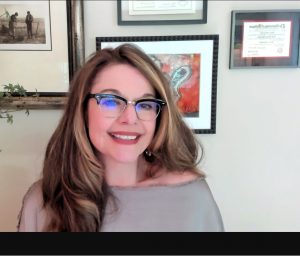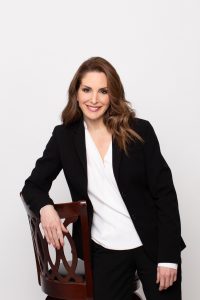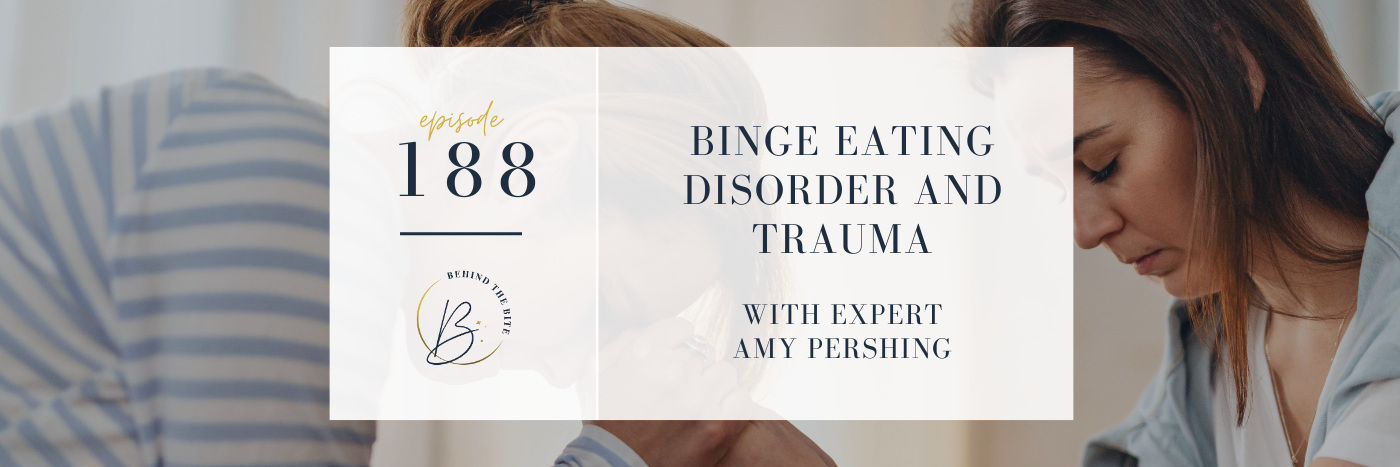MEET AMY PERSHING

Amy is the Founder of Bodywise BED Recovery Program, and President of the Board of the Center for Eating Disorders in Ann Arbor, Michigan. Amy is an internationally known leader in the development of treatment paradigms for BED, and one of the first clinicians to specialize in BED treatment.
Amy lectures and teaches internationally on the treatment of BED for professional and lay communities about BED treatment and recovery, relapse prevention, weight stigma, and a non-diet approach for eating and movement. Amy is the Past Chair of the Binge Eating Disorder Association (BEDA), and the winner of BEDA’s Pioneer in Clinical Advocacy award.
Visit Bodywise and connect on LinkedIn.
IN THIS PODCAST
- Defining trauma
- Perfectionism - may - come from trauma
- Binge eating disorder and trauma
- Avoid moralizing food
- Let your body change
Defining trauma
There is trauma that can be clearly defined by a marked event that was textbook traumatic, such as a house fire, a violent assault, the death of a loved one, a bad car accident, and so on. These are the most well-known types of traumas. However, people can also suffer from less visible traumas, such as those that come from fraught emotional relationships, where a person’s emotional state is at risk, increasing their risk of developing mental health disorders.Most of the trauma that happens with eating disorders is what we call “complex” or “relational” trauma. It’s much more subtle and much more enduring. (Amy Pershing)Amy explains that the most common type of relational trauma is when a person has to diminish who they are in order to maintain a relationship with someone. Traumatic childhoods with difficult or abusive parents or caregivers can cause children to grow up into adults who develop severe coping mechanisms because they see the world askew due to the trauma that they grew up in.
It significantly limits who they are, and in order to limit who we are, one tool that kids use is shame … If we think about shame as a way to diminish who we are, right? … Overtime, that kind of shame has a really erosive effect on a child’s development. (Amy Pershing)
Perfectionism - may - come from trauma
If people learn as children that they need to do things specifically - or not do them specifically - to appease their parents, then they may learn to do these things as best as they can to keep their dysregulated parents happy. What this means is that children grow up becoming perfectionists, and they fear anything that isn’t done exactly right, since in the past they may have faced physical or emotional rebukes from their parents.Perfectionism develops in those kinds of situations, because we feel like, “In order to be loved I have to be perfect” … We are born with some tendencies towards perfectionism, but what we know is that it’s the environment that really activates that way of being in the world. (Amy Pershing)
Binge eating disorder and trauma
When it comes to growing up in a traumatic household with chaotic parental or caregiver relationships, for many children, developing a more emotional attachment with food becomes a source of emotional protection, like a coping mechanism.Food is naturally a dopamine hit, so we actually do feel better when we eat. When people binge, their prefrontal cortex shuts down because … They’re focused more on digestion … And food is accessible for kids, they don’t sometimes … have access to drugs and alcohol, you know, other ways to distract or to soothe or to dissociate. Food is available often, and so that’s one way that the relationship with food can develop. (Amy Pershing)For children, food is an easily accessible “feel-good” that can provide a soothing feeling, especially when their parents are not safe spaces for them to connect with.
Avoid moralizing food
Giving food a moral value such as “good”, “bad”, a “cheat”, or anything like that just makes the situation worse, since then the person may associate themselves with that moral too if they eat those foods. Food is food. Some foods have more nutritional value than others, but no food is specifically good or bad. That type of black-and-white thinking simply causes more distress.What might [people] be going to food to do? … How does food impact their lived experience … How is it helpful? … Are there other ways to get those needs met? (Amy Pershing)Being compassionate and proactive with yourself to learn more about why you are drawn to eat when you are not fully hungry is a way to learn why you are using food, not necessarily eating food. This goes hand in hand with intuitive eating, where you are working to get in sync with your body, instead of going against it.
Let your body change
One of the most revolutionary acts that you can do for your body when it comes to eating well and loving yourself is to love your body, accept change, and to live without needing to fit into societal norms. If you care for yourself, the diet industry cannot get to you, because they capitalize on your insecurities to sell you products and services. You can do this by not falling into the trap of fearing age. Bodies will age, and they will change as they age, and this is perfectly normal, and not something that you have to stop or prevent.Your body tells your life story, and we live in a culture that says, “You shouldn’t have any evidence of your story”, and I think that’s tragic. (Amy Pershing)
USEFUL LINKS
Visit Bodywise and connect on LinkedIn. BOOK | Amy Pershing - Binge Eating Disorder: The Journey to Recovery BOOK | Amy Pershing - Beyond and Emotional Eating, Chronic Dieting, Bingeing BOOK | Amy Pershing and Judith Matz and Christy Harrison - Body Image: A Trauma-Informed Workbook MAKING PEACE WITH FOOD WITH EXPERT JUDITH MATZ | EP 187 Visit speakpipe.com/behindthebite and submit your comment via voice message! Sign up for the free Behind The Bite Course Practice of the Practice Network Email Dr. Cristina Castagnini: info@behindthebitepodcast.comMEET DR. CRISTINA CASTAGNINI
 I am a licensed Psychologist and Certified Eating Disorder Specialist.
While I may have over 20 years of clinical experience, what I also have is the experience of having been a patient who had an eating disorder as well.
One thing that I never had during all of my treatment was someone who could look me in the eye and honestly say to me "Hey, I've been there. I understand".
Going through treatment for an eating disorder is one of the hardest and scariest things to do. I remember being asked to do things that scared me. Things I now know ultimately helped me to get better. But, at the time, I had serious doubts and fears about it.
If even one of my providers had been able to tell me "I know it's scary, but I had to go through that part too. Here's what will probably happen...." then perhaps I would not have gone in and out of treatment so many times.
My own experience ultimately led me to specialize in treating eating disorders. I wanted to be the therapist I never had; the one who "got it".
I will be giving you my perspective and information as an expert and clinician who has been treating patients for over 2 decades.
But don't just take my word for it...keep listening to hear the truly informative insights and knowledge guest experts have to share.
I am so happy you are here!
I am a licensed Psychologist and Certified Eating Disorder Specialist.
While I may have over 20 years of clinical experience, what I also have is the experience of having been a patient who had an eating disorder as well.
One thing that I never had during all of my treatment was someone who could look me in the eye and honestly say to me "Hey, I've been there. I understand".
Going through treatment for an eating disorder is one of the hardest and scariest things to do. I remember being asked to do things that scared me. Things I now know ultimately helped me to get better. But, at the time, I had serious doubts and fears about it.
If even one of my providers had been able to tell me "I know it's scary, but I had to go through that part too. Here's what will probably happen...." then perhaps I would not have gone in and out of treatment so many times.
My own experience ultimately led me to specialize in treating eating disorders. I wanted to be the therapist I never had; the one who "got it".
I will be giving you my perspective and information as an expert and clinician who has been treating patients for over 2 decades.
But don't just take my word for it...keep listening to hear the truly informative insights and knowledge guest experts have to share.
I am so happy you are here!


Comments